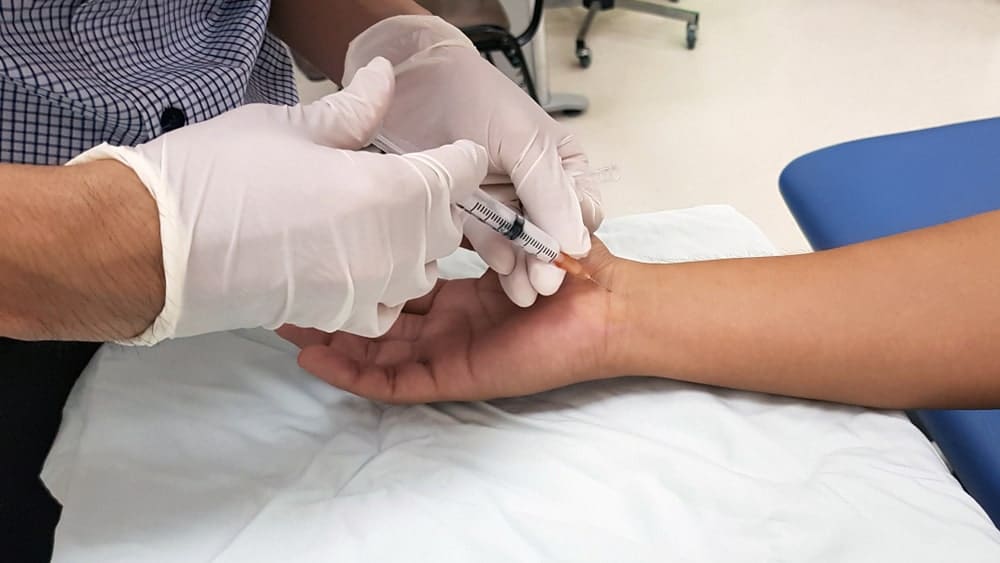Anesthesia can make even the most painful surgeries bearable for the patient. Unfortunately, anesthesia can also have dangerous side effects if not administered correctly.
Wagner Reese, LLP’s medical malpractice services can help you when something goes wrong on the operating table. If you have experienced medical malpractice through improperly administered anesthesia, our team has multiple lawyers listed in either the Super Lawyers or Rising Stars lists, and one of our founding partners has been named one of Indiana’s Top 25 Medical Malpractice Lawyers multiple years.
Definition And Purpose Of Anesthesia
Anesthesia is a medication used to prevent patients from feeling pain during a medical procedure. It can be used as a general anesthetic, meaning you should be unconscious, or as a regional anesthesia, where only a certain part of the body is numb.
This is to make surgery safer and easier on the patient. Extreme pain can cause a person to go into shock, and anesthesia makes it possible to more comfortably face an operation.
Is There Such A Thing As “Too Much” Anesthesia?
Unfortunately, if an anesthesiologist is not being careful, they may administer too much anesthesia. That can cause serious issues for you and your health.
What are the adverse effects of excessive anesthesia? These effects can have short-term and long-term effects on your health, so talk to your attorney if you have been given an overdose of anesthesia.
Short-Term Side Effects Of Excessive Anesthesia
Even in the short-term, excessive anesthesia can cause serious issues. You may feel or experience any of the following in the immediate aftermath of your surgery:
- Nausea and vomiting
- Chills and shivering
- Delirium
Any of these side effects can indicate a larger problem. Do not hesitate to seek out medical attention if you are facing any of these issues after being given anesthesia.
Long-term consequences of receiving an overdose of anesthesia
When you have been placed under anesthesia, you may find yourself dealing with effects that take much longer to recover from. These impacts can hurt you for months, years, or even a lifetime. You may have even lost a loved one to one of these conditions.
The risks of receiving too much anesthesia are high, including:
- Cognitive dysfunction
- Brain injuries
- Death
Factors That May Contribute To The Administration Of Too Much Anesthesia
Anesthesia overdose complications can be complex, and understanding what caused the overdose is one of the first steps you can take to recovery.
Anesthesia errors typically happen when the anesthesiologist is engaging in negligence. This may be out of fatigue, a disregard for patient safety, or a life of attention to the vital signs of the patient. Your attorney can help you investigate and determine what caused your specific malpractice case.
Laws And Regulations Related To Anesthesia Dosage And Administration
Because anesthesia can be so dangerous, There are many regulations that doctors and dentists must follow for their patients. These regulations include up to date information about the safest options for administration and care.
Anesthesia dosage can be a little more complicated because the specific dosage each patient needs varies depending on the specifics of their body. For example, weight, age, and certain health conditions can impact the effects of anesthesia on your body. This is something your anesthesiologist or doctor should always check before beginning any sort of operation.
Common Symptoms And Signs Of Anesthesia Overdose
If you are suffering from an anesthesia overdose, there are certain effects you may notice that may indicate that you are experiencing an overdose. If you have experienced any of the following signs or symptoms, do not hesitate to seek out medical attention to help you recover:
- Bladder problems
- Chills
- Nausea or vomiting
- Cognitive dysfunction
- Prolonged unconsciousness
These symptoms may seem minor at the time but can be signs of worse health conditions. If you have experienced any of these symptoms after being put under anesthesia, reach out to an attorney to learn more about your opportunities to seek compensation.
Steps To Take If You Suspect You Have Experienced An Anesthesia Overdose
If you believe you may have experienced an anesthesia overdose, you do have options to take action. However, taking the right steps can help you protect your case as you progress through it.
First, document all your symptoms and seek medical treatment. Seeking treatment as soon as possible can help you protect yourself from more severe symptoms and can protect you from worsening conditions.
After this, you may need to speak with an attorney about gathering evidence that you suffered from an anesthesia overdose. That may include gathering certain medical records and speaking to an expert witness, who can give their expert medical opinion about your case. After this, you may have grounds to file a lawsuit against the doctor or hospital that injured you.
Legal Considerations And Options For Victims Of Anesthesia Malpractice
If you have experienced anesthesia malpractice, keep in mind that you have legal options as a victim. You may have grounds to sue the doctor or hospital group That injured you, potentially gaining compensation that can give you the support you need to recover.
However, this can be difficult to do alone. The legal team at Wagner Reese, LLP is here to make your medical malpractice claim as easy as possible. That starts with an aggressive defense from a top-rated lawyer.
For example, Attorney Jason Reese, one of our founding partners, has been named one of Indiana’s Top 25 Medical Malpractice Lawyers for multiple years. Our other attorneys have been recognized by organizations like Best Lawyers®, Super Lawyers®, and the National Trial Association.
We are ready to put these accolades and a track record of success to work for you. That starts with a free consultation about your case and the suffering you have experienced. When you are ready to learn more about your claim and take action, give us a call at 866-828-0308 or fill out our online contact form to learn more.

